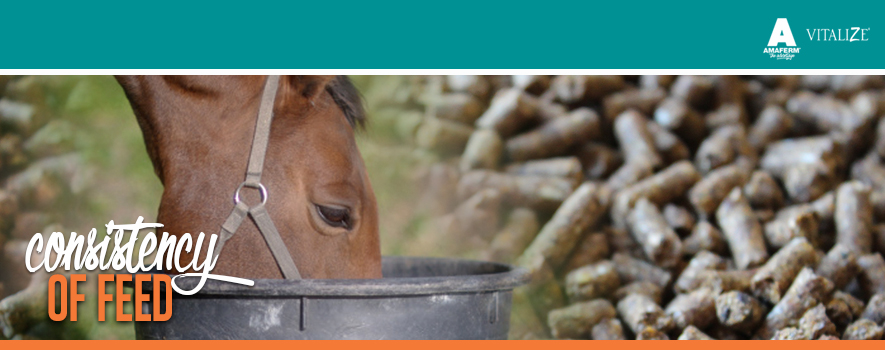
Like many other animals, horses are creatures of habit. So, when it comes to feeding a horse, consistency is key. Arguably the most important is the consistency of the type and quality of hay and grain. This is why feeding labels and nutritionists always recommend taking several days or weeks to make changes to a horse’s diet. But have you ever wondered why this is necessary? The answer is rooted in the physiology of the equine digestive system.
Horses are hindgut fermenters, meaning that the hindgut (the portion of the digestive system that comes after the stomach and small intestine) is the site of fermentation of fiber. The hindgut contains billions of microbes that carry out the fermentation process for the horse, which cannot break down fiber on its own. Since different microbes have different digestive niches, the balance of the types of microbes in the hindgut is essential to digestive health and efficiency. The “right” balance of microbes is also different for each horse and depends on their diet, overall health, age and other variables.
Any change in the amount or type of hay or grain fed to a horse can alter the balance of the microbes in the hindgut and wreak havoc on the digestive system. Therefore, any change in the diet should be done gradually. The gradual change in the feed allows the horse’s gut microbes to adapt to the new feed and be able to digest it adequately. This will help minimize the chances of digestive upset or colic from the change in feed.
Remember that as the seasons change the consistency of forage in pastures is also changing. Therefore, you may want to gradually increase pasture time during the spring when the nutrient value and sugar content of the grass is changing rapidly to avoid digestive problems. Feeding a prebiotic like Amaferm®, found in every Vitalize® product, can also help reduce digestive upset from changes in feed rations by stabilizing the microbe population and maximizing the efficiency of microbes to assist in digestion and absorption of nutrients.


